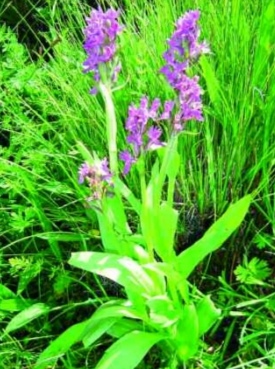Mugu, Nepal - Once renowned as a treasure trove of medicinal herbs, Mugu district is witnessing a significant decline in the production of these natural resources, raising alarms for the livelihoods of local communities and the region's ecological balance. The scarcity of medicinal herbs in community forests and high-altitude grasslands has directly impacted families who depend on their collection and trade for survival.
Herbs such as Yarsagumba, Kutki, Atis, wild garlic, Bikh, morel mushrooms, and Panchaule, which once thrived in areas like Soru, Khatyad, Chhayanath Rara, and Mugum Karmarong, are now found in insufficient quantities. This reduction has not only curtailed household incomes but has also compelled many locals to migrate to India in search of alternative livelihoods.
“Medicinal herbs were our primary source of income. They funded our children’s education and covered medical expenses,” said Dharma Bahadur Aidi, a resident of Chhayanath Rara Municipality-6. “Now, with declining production, we are left with no choice but to look for work elsewhere.”
A Shrinking Industry
Data from the fiscal year 2080/81 reveals that 26,000 kilograms of medicinal herbs were exported from Mugu, generating revenue of NPR 182,000. However, the decline in availability has started to reshape local priorities. Birkha Bahadur Budha, a resident of Chhayanath Rara-10, shared that he is considering moving his son from a school in Surkhet back to Mugu due to financial constraints.
Local traders like Panch Bahadur Aidi confirm that medicinal herb collection is no longer as profitable. “We barely manage to gather six to eight quintals of herbs. A sustainable development strategy is urgently needed to revive production,” he said.
Root Causes of Decline
The District Division Forest Office has identified multiple reasons for the decline. These include:
Premature Harvesting: Collectors often harvest herbs prematurely, particularly during Asar and Shrawan, before the plants are fully matured.
Cross-District Smuggling: Neighboring districts like Humla and Jumla have seen instances of illegal herb collection and trade.
Climate Change and Overharvesting: The ecological imbalance caused by changing weather patterns and unsustainable harvesting practices has exacerbated the problem.
Govinda Mahat, Acting Chief of the District Division Forest Office, emphasized the role of the community in tackling these challenges. “Community members must support conservation efforts and prevent illegal activities like off-season harvesting and smuggling,” he said.
The Way Forward
Despite the challenges, efforts are underway to address the crisis. The Division Forest Office conducts capacity-building training for local leaders annually, focusing on sustainable harvesting and conservation practices. However, experts and locals agree that a comprehensive strategy is required.
A combination of scientific intervention, community engagement, and policy reform could pave the way for the sustainable revival of Mugu's medicinal herb industry. Without swift action, the district risks losing a vital economic and ecological asset, further deepening the struggles of its people.
For Mugu’s residents, the need for urgent solutions is clear: “Our livelihoods depend on these herbs,” said a local collector. “If we lose them, we lose everything.”